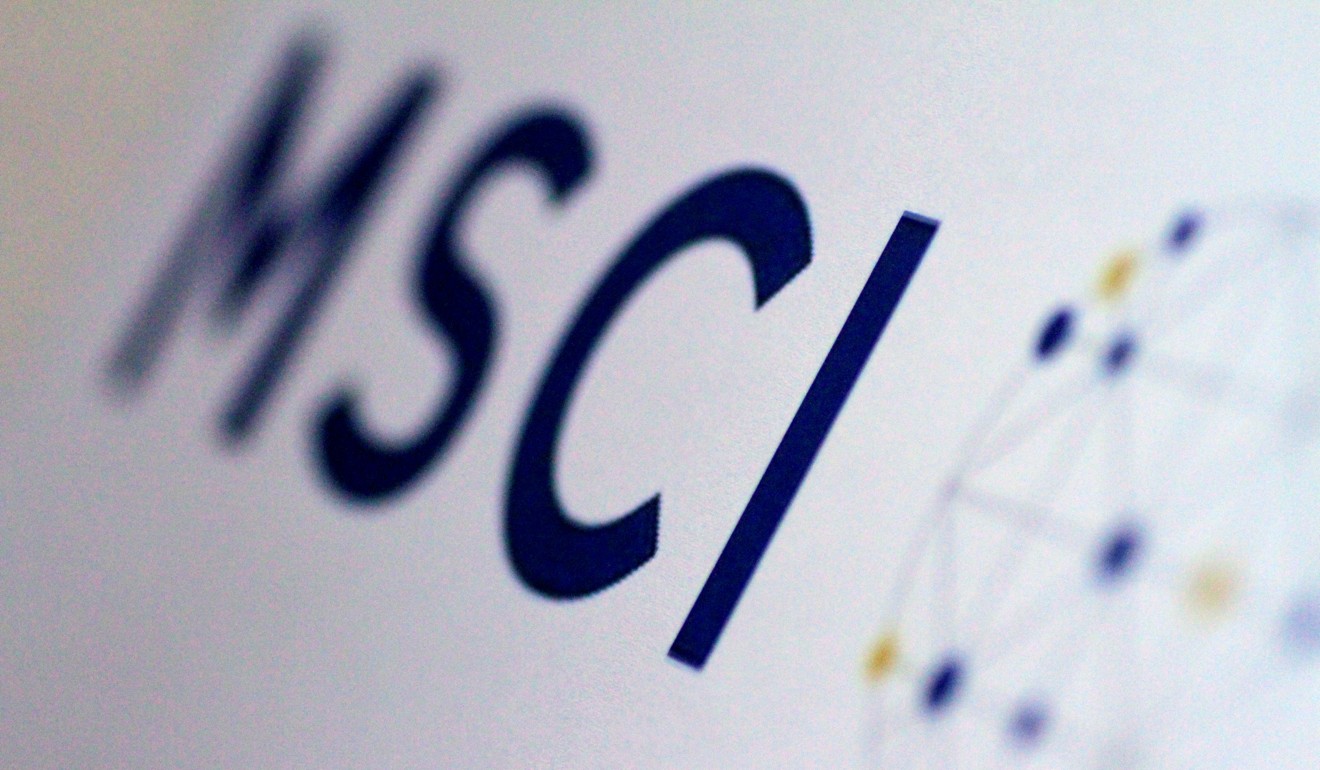
MSCI: China’s capital controls, trading halts are foreigners’ worries
MSCI has agreed to include only 5 per cent of free-floating stocks in 222 Chinese firms in its global index, and a 100 per cent inclusion could take five to 10 years, say investors
China’s restrictions on capital repatriation and large number of stock trading suspensions are foreign investors’ primary concerns, which could impede further global integration of the nation’s US$7 trillion stock market, according to index compiler MSCI.
The two issues may cause illiquidity problems to foreigners who invest in the mainland-traded A shares, said Chia Chin Ping, MSCI’s managing director, in a phone interview.
The New York-based index compiler announced last month to add 222 mainland-listed companies to its global benchmarks for the first time, initially with 0.73 per cent weighting in the emerging markets index.
Chinese regulators “need to have the determination to continue to open up and make it easier for international investors,” Chia said.
“Having ongoing dialogues and regular conversations with investors is one that will be helpful. Once investors have good experience, they are more ready to embrace a bigger China [exposure] in their portfolios.”
China’s restrictions on capital accounts and listed companies’ abuse of trading suspension may undermine top policy makers’ ambition to seek a prominent position for the country’s stock market, already the world’s second biggest.
Due to China’s foreign investment restrictions, MSCI agreed initially to include only 5 per cent of free-floating stocks in the 222 Chinese companies in its global indexes, and a 100 per cent inclusion may take between five and 10 years, according to investors including asset manager Robeco.

“The main concern has always been the capital repatriation restrictions. The concern is always that if I put my money in, what could be the chance of China imposing a capital control?” Chia said.
“The issue of such suspension is also very important. It’s about information, transparency and liquidity.”
At the peak of a stock rout in 2015, more than 1,200 listed companies, or 40 per cent of all the firms on the Shanghai and Shenzhen bourses, were halted from trading as executives were convinced that such a move would protect the stocks from slumping further amid the market turmoil.
The concern is always that if I put my money in, what could be the chance of China imposing a capital control
In the latest exchange rules to crack down on trading halts, suspensions cannot exceed three months in principle. As of Monday, 248 out of the 3,235 mainland-listed companies were suspended from trading.
“When your portfolios are suspended for a long time, it becomes very, very problematic as many of these investors have investors in the back,” Chia said. “If their investors want to redeem the money and part of your portfolios is still suspended, there’s no way you can raise the cash to pay back to these investors.”
Chia also said the securities regulator was actively seeking to raise or scrap the daily quotas on the foreign purchase of mainland equities through the two stock connect schemes with the Hong Kong exchange, as the exhaustion of the daily cap will become problematic for passive investors, or index fund managers, should they want to buy more stocks to mimic their portfolios based on index composition.
MSCI also announced on Monday two indexes for Japanese stocks: the MSCI Japan Empowering Women Index and the MSCI Japan ESG Select Leaders Index, which covers companies based on their environmental, social and governance profiles.

